Wildfires have devastated the Texas cattle industry and the effects may be long-lasting
When Shane Pennington, a 56-year-old cattle farmer near Canadian, Texas, first saw flames from an enormous wildfire approaching the ranch he manages, his first concern wasn’t his home. It was his animals.
Pennington told CNN he returned to the ranch to find around 50 cattle dead, with nursing cows desperately searching for their lost calves.
As the flames tore through the ranch, they caused excruciating injuries, burning off some animals’ tails and rendering others blind. “It just burned all the hair off them,” he said. “Their feet are coming off. Their hooves, they’re bloody.”
Some of them are “cows that I raised right here,” he said. “It’s just hard to see them burn up.”
Pennington is one of many cattle farmers whose livelihoods have been devastated by the Smokehouse Creek Fire, the largest wildfire in Texas history, which has burned more than a million acres of land across the panhandle.
The state is home to about 4.1 million beef cattle, according to David P. Anderson, professor of agricultural economics at Texas A&M University. And more than 85% are in the panhandle, according to Texas Agriculture Commissioner Sid Miller.
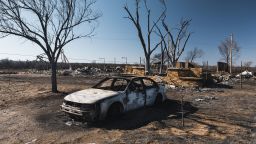
RELATED ARTICLEFierce winds and dry weather threaten to worsen biggest wildfire in Texas’ history
Farmers and agricultural experts say the wildfire will continue to affect the cattle industry for years to come.
In addition to the short-term effects of cattle killed and grievously injured by the flames, there will be lasting repercussions, as herds cultivated for years struggle to recover and traumatized cows fail to reproduce.
Speaking with CNN’s Omar Jimenez on CNN Newsroom Saturday, Miller asked for donations and prayers for Texas residents who have lost homes and livestock in the wildfires.
“There’s no grass, there’s no water for the livestock,” Miller stressed. “We’ve lost over 3,000 head, which is a very small number, that will double or triple easily. We’ve got cattle that we’re going to have to euthanize because of the damage to their hooves, their udders. We’ll just have to put them down.”
For Pennington, the inferno has been both financially and emotionally catastrophic.
“Your job is to keep them alive, not to destroy them,” he said. “It’s tough.”
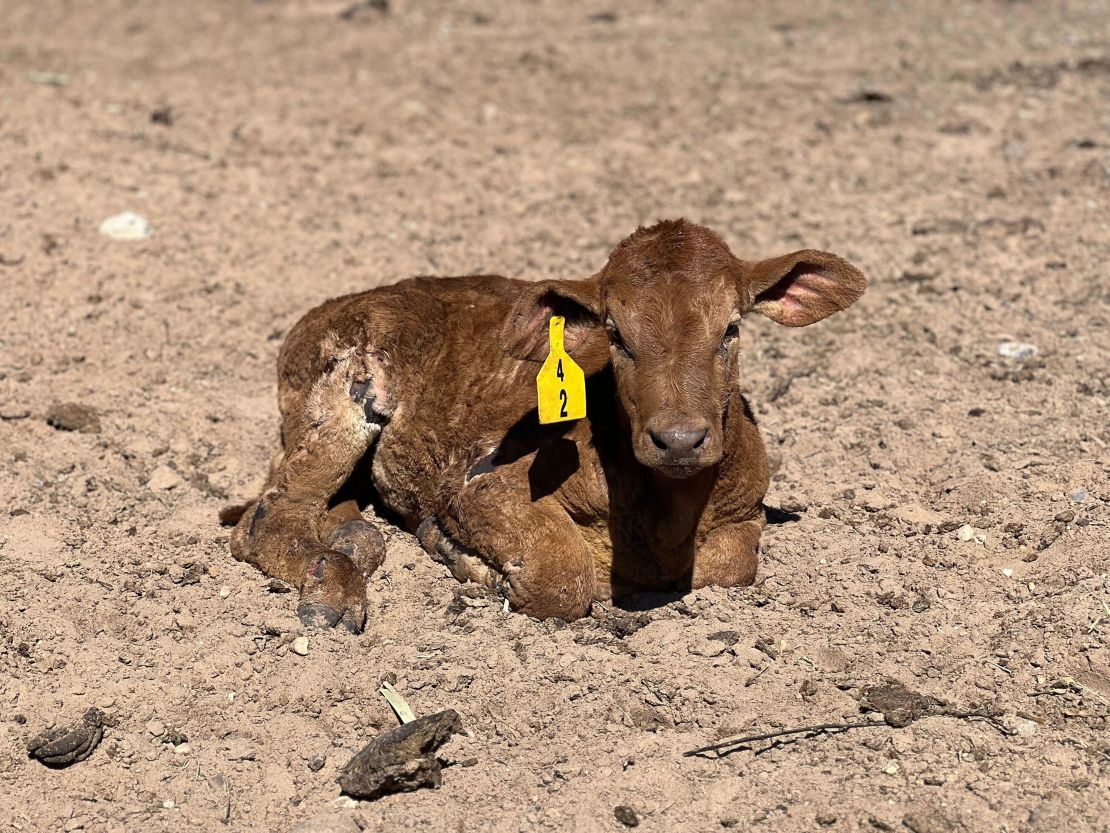
A calf burned in the wildfire lies down at Jack Fields’ ranch. Camila Bernal/CNN
“Even if they survive it, more than likely they’re gonna get pneumonia, they’re gonna get sick, they’re gonna die,” Pennington added.
He said he’s already euthanized some animals due to their injuries and anticipates the number will continue growing as he identifies which animals will be unable to recover from their wounds and illnesses.
And some animals will need to be culled simply because the hundreds of bales of hay meant to feed them burned up in the flames, he said.
It will likely take years for the business to recover. “We’ve got a lot of work ahead of us,” Pennington said.
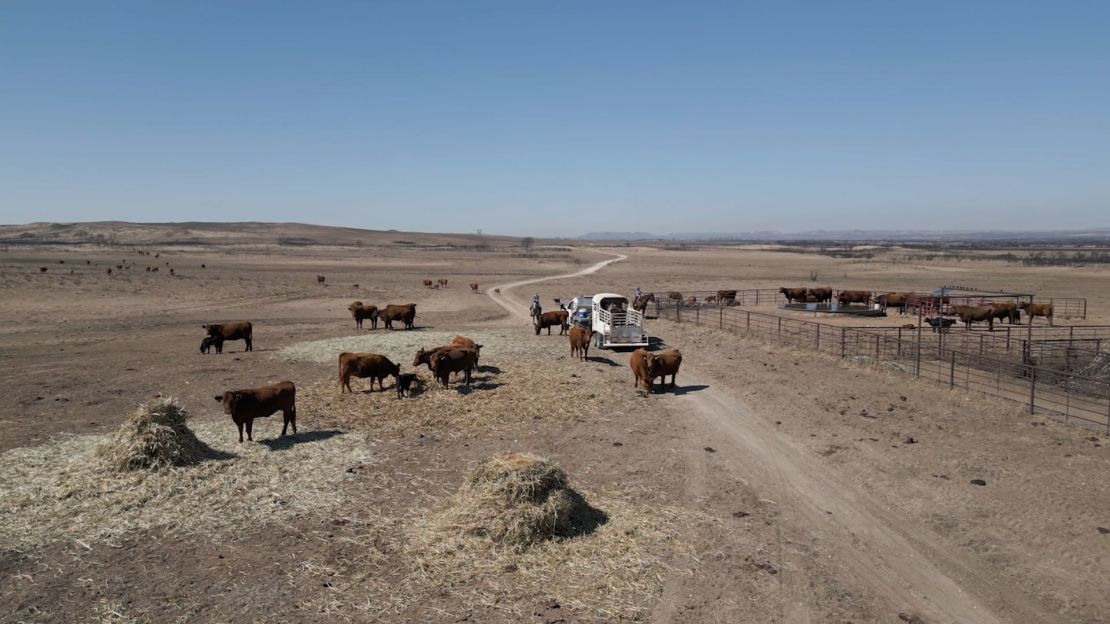
An aerial view of cattle on Shane Pennington’s ranch. Pennington is one of many cattle farmers whose livelihoods have been devastated by the Smokehouse Creek Fire. CNN
Death and destruction hit iconic industry
The cattle business in Texas is worth an estimated $15.5 billion, making it by far the most profitable agricultural commodity in the state, according to the state’s Department of Agriculture. There are millions of cattle across the panhandle specifically, with some counties counting more cattle than people among its residents, the department reported.
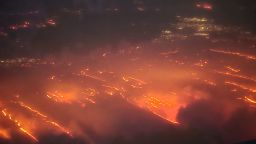
RELATED ARTICLEHow a warming climate is setting the stage for fast-spreading, destructive wildfires
“The losses could be catastrophic for those counties,” Miller said in a news release. “Farmers and ranchers are losing everything.”
Brandon Meier, a local rancher, volunteer fire chief, and agricultural science teacher at a high school in the panhandle town of Canadian, described the raging inferno as a “monster.”
Seeing the way the flames transformed the landscape was “surreal,” he told CNN.
“I’ve seen this country, how it is with grass and sagebrush and cattle roaming out there, and the next day we come down here; it’s a barren desert,” he said.
In addition to damage to their hooves and eyes, many of the cattle are also suffering from smoke inhalation which can cause fatal pneumonia, Meier said. And udder burns have made it impossible for some cows to nurse their calves, requiring them to be bottle-fed with milk substitutes.
The loss of life represents a massive loss of income for ranchers, he said.
“A lot of these families are ranching families, and that’s their livelihood out there” in the panhandle, he said. “And we rely on that income … Our job isn’t 8 to 5. It’s 24/7, holidays, everything.”
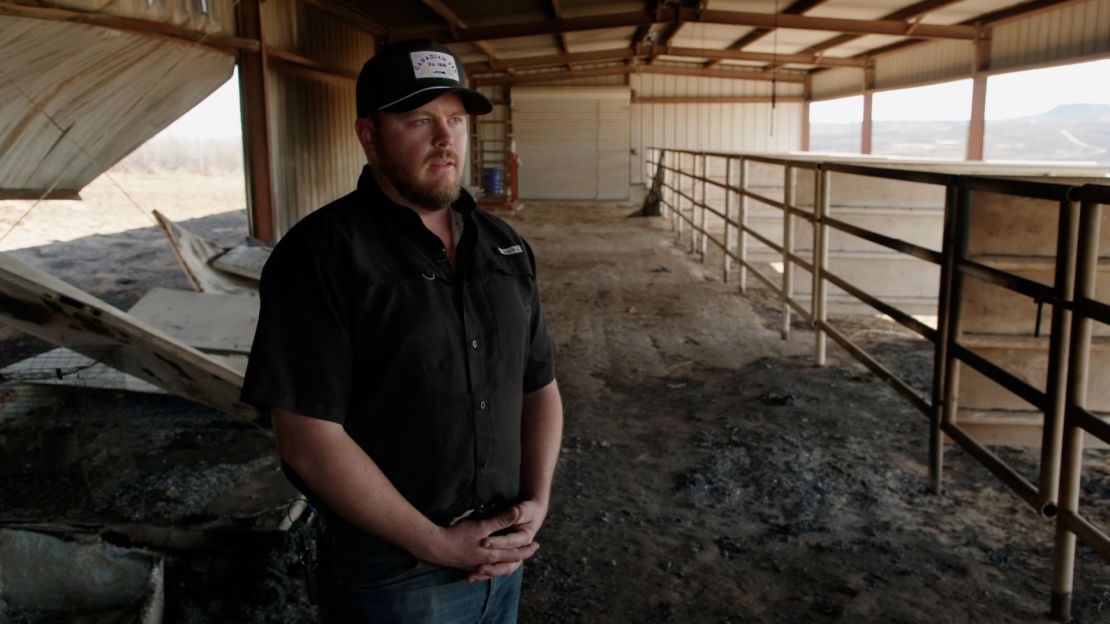
Brandon Meier, a local rancher and volunteer fire chief in Darrouzett, Texas, speaks to CNN. CNN
Flames deal lasting blow to ranchers
Ranchers and local authorities say although the wildfire is not expected to affect beef prices across the country, it may leave lasting economic scars for ranchers.
Fields, the owner of the ranch where Pennington works, told CNN “a good productive cow” is worth between $2,000 and $2,400.
Currently, he told CNN, he’s more concerned about “trying to make them comfortable” than worrying about the financial losses he’s suffered. He credited volunteer firefighters with saving his ranch house and helping preserve his property,
He pointed out cattle prices were already high before the wildfire hit and they will likely continue to go up in the aftermath of the blaze.
Anderson, the agricultural economics professor, told CNN the effect on cattle ranchers will be multifold. In addition to losing animals, affected farmers have also lost grass, hay, barns, and fencing to the blaze. A mile of fencing alone might cost between $15,000 and $18,000, he said.
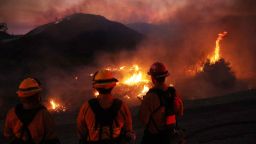
Some relief might come from government programs designed to help farmers in the wake of ecological disasters. The USDA has instructed farmers to document their losses and take photos of each dead animal for reimbursement through its disaster assistance programs.
The Texas Department of Agriculture coordinates its own relief fund for farmers and is also working to connect farmers in need with hay through its “Hay Hotline.”
Anderson said despite how challenging the wildfire will be for Texas ranchers, it is unlikely to have a significant effect on beef prices. The number of affected cattle is small compared to the total population across the US, he explained.
“If the fire hits your ranch, it’s a huge disaster for you,” he said. “But we don’t expect to see price effects to consumers because of this.”
For Pennington, the incident has proved the challenges of separating the business from the emotional side of his work.
“As sentimental and as attached as you get, it still has to be treated like a business,” he said, surveying the herd of injured and traumatized animals.
“But look at these baby calves. How could anybody be mean to any of them?” he said.
@CNN
